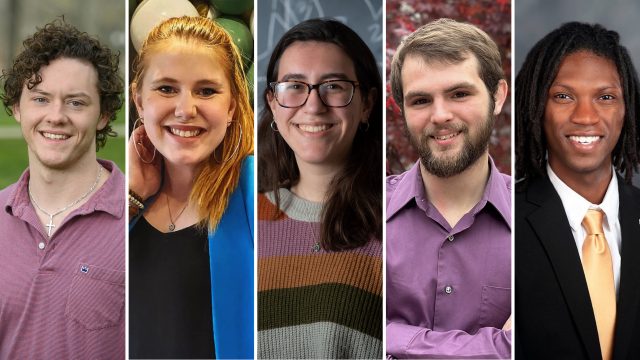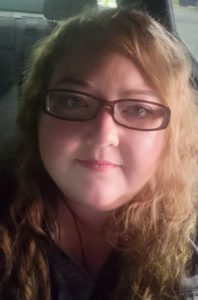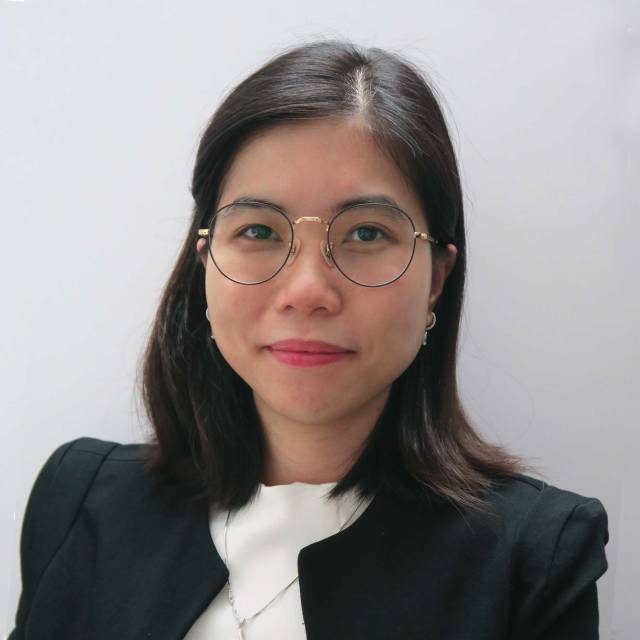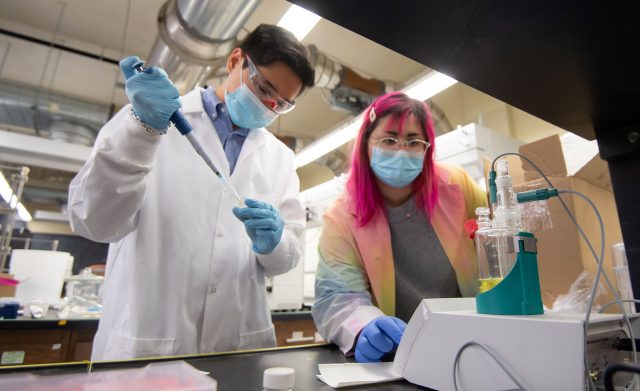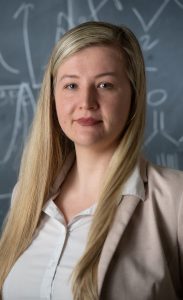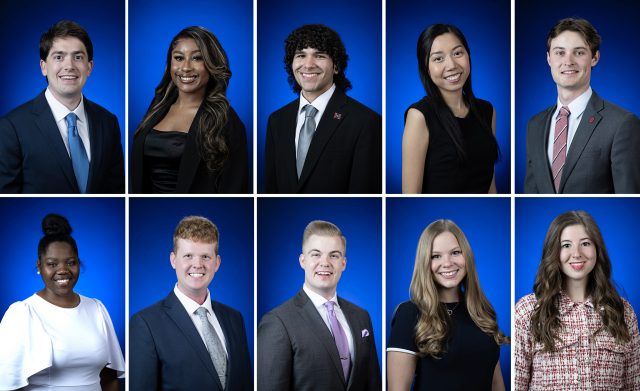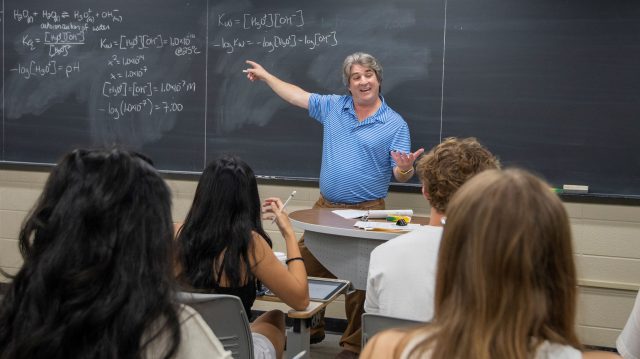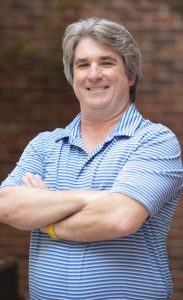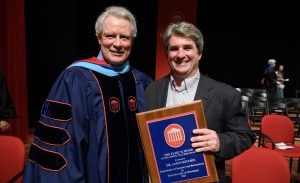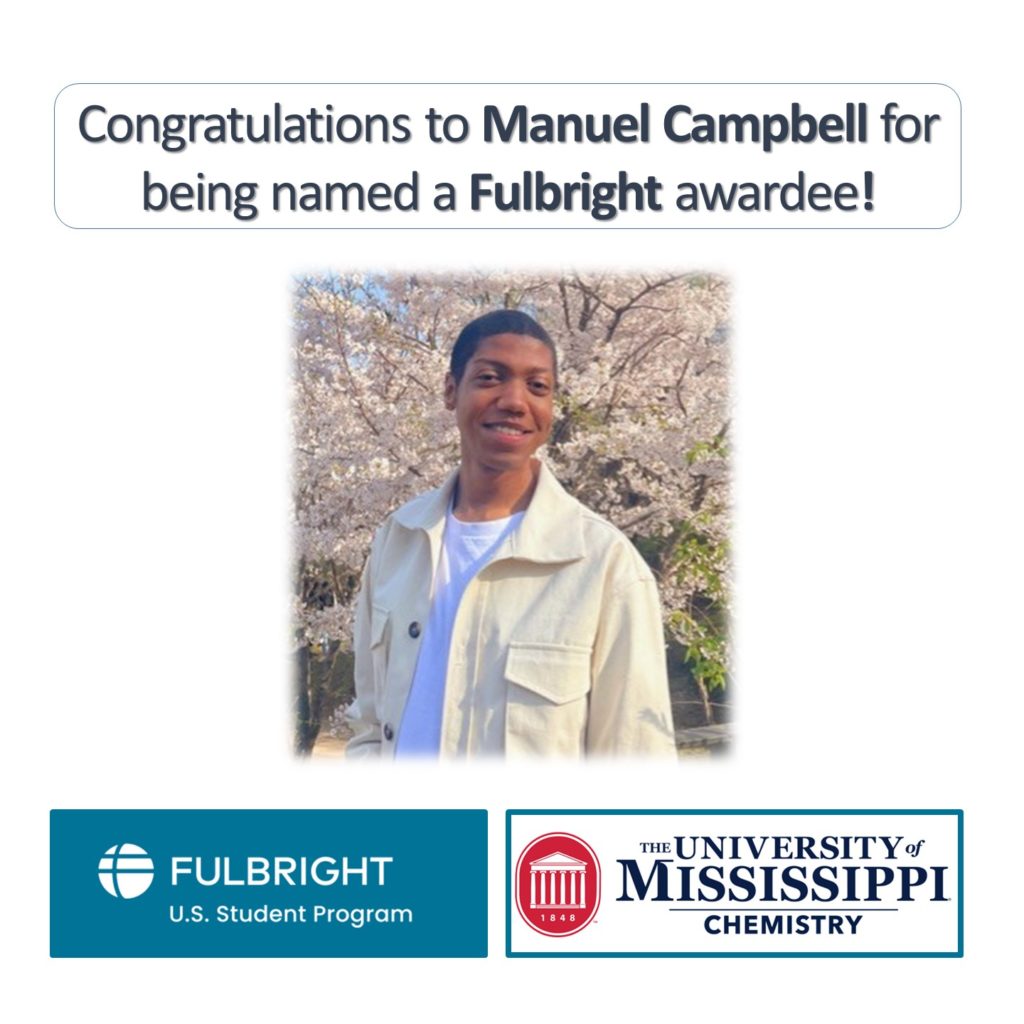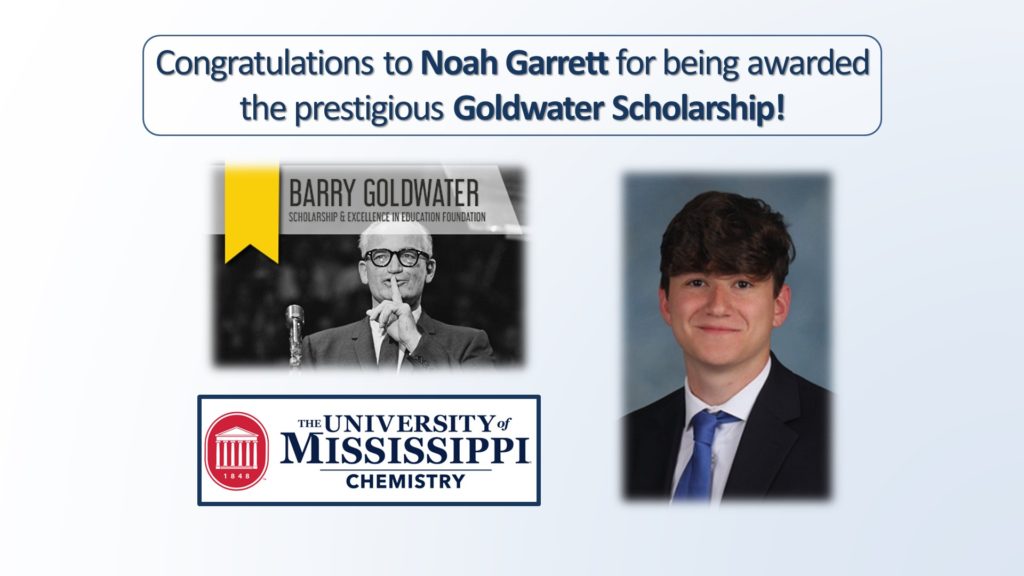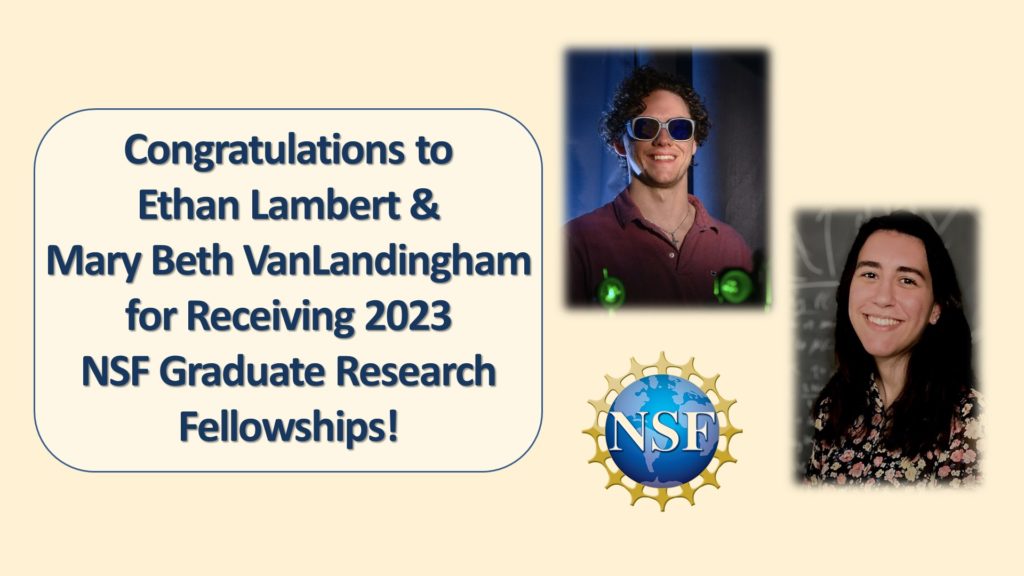A record five University of Mississippi students have been selected for awards in the National Science Foundation Graduate Research Fellowship Program. These include two graduating senior Chemistry B.S. majors.
The 2023 fellows include three graduating seniors – Ethan C. Lambert, of Kossuth; Mary Beth Vanlandingham, from Florence; and Stanford White, of Brighton, Tennessee – and two graduate students, Emily Rasmussen, from Union Grove, Wisconsin; and Sydney Wicks, of Clinton.
The five-year fellowships provide three years of financial support. Each fellowship comes with a $37,000 annual stipend for the fellow, plus a $12,000 cost of education allowance to the college or university that the fellow chooses for their graduate program.
Nationwide, only about 15% of applications result in awards each year.
“The NSF GRFP is a highly competitive fellowship,” said Annette Kluck, dean of the UM Graduate School. “The award enables students to pursue their research during their graduate study without having to work for an institution to help cover the costs of their degree program.”
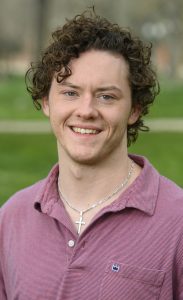
Ethan Lambert has developed a successful research program as an undergraduate in chemistry, with seven papers published in scientific journals and nine citations. Photo by Thomas Graning/Ole Miss Digital Imaging Services
Fellowship recipients are required to work toward a master’s or doctoral degree in science, technology, engineering or mathematics – or STEM – fields at an accredited U.S. institution.
Two of the fellowship recipients, Lambert and Vanlandingham, graduated with bachelor’s degrees in chemistry.
Lambert initially enrolled at Ole Miss as a chemical engineering major.
“Quickly in my ‘chem e’ classes, however, I learned that my thought process differed greatly from the other students in the classroom,” he said. “My desire to study fundamental processes led me to change my major to chemistry and begin studying fundamental chemical and physical interactions under Dr. (Nathan) Hammer.”
Lambert’s undergraduate research produced seven papers published in scientific journals, an exceptional accomplishment because undergraduates often find that publishing their results can be difficult. He also has nine citations, a significant number for undergraduate work because citations mean another researcher has quoted from the published paper.
“I also have six more works in either submission to a journal or preparation for submission,” he said. “The most challenging part about research has been having time to do everything.
“Even in my last weeks at Ole Miss, I constantly thought of new experiments to run without any time to run them in. I just have to carry my ideas with me to the next chapter.”
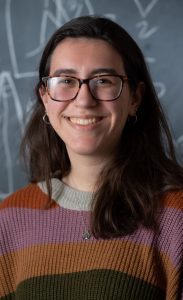
Mary Beth Vanlandingham plans to pursue a doctorate in environmental chemistry. She says one of the biggest challenges of being a scientist is figuring out how to learn from failure. Photo by Kevin Bain/Ole Miss Digital Imaging Services
Lambert also received a Goldwater Fellowship in his time at Ole Miss. He plans to continue his research at Florida State University, where he will pursue a doctorate in chemistry. He aims to study processes in materials that can be used for solar power applications.
Vanlandingham reflected on the challenges that come with being a scientist.
“One of the most difficult, I think, is when something you’ve been working hard on doesn’t work out,” she said. “On the flip side of that, though, are two things: Firstly, you learn through failure.
“Secondly, the feeling you get, when you figure out the problem, more than makes up for the challenges.”
The Tanner Lab, which focuses on potential uses for compounds called ionic salts, caught Vanlandingham’s attention at Ole Miss.
“I knew for a long time that I wanted to do chemistry research,” she said. “When I was able to look for a lab to join, I saw the research Dr. Eden Tanner and her lab were doing, and I thought it was neat.
“I especially like how it has a lot of potential to help improve a lot of people’s lives.”
She plans to work toward a doctorate in environmental chemistry at Florida International University.
White was undetermined about his career path toward the end of high school, but physics teachers at Tipton Rosemary Academy inspired his interest in math and engineering. He finds literature review, reading papers and “learning things from technical jargon I don’t understand yet” to be the most challenging aspects of research.
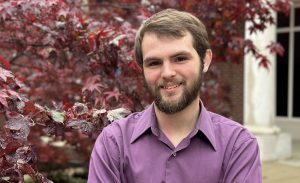
Stanford White, who initially enrolled as a chemical engineering major before switching to mechanical engineering, plans to work toward a doctorate with focus on materials sciences and engineering at Ole Miss. Submitted photo
“I started out as a chemical engineering major but switched to mechanical engineering the day before spring break when COVID hit,” he said. “I ended up loving it and never looked back.”
White graduated in May with his bachelor’s in mechanical engineering and is staying at UM to pursue a doctorate with focus on materials sciences and engineering.
The two graduate students with research underway completed their bachelor’s degrees at other universities before coming to Ole Miss for graduate school.
Rasmussen completed her undergraduate work at Concordia University of Nebraska. She finds graduate research challenging, saying it does not usually go as expected.
“As a planner and perfectionist, this can be hard to cope with at times, but with every ‘failure,’ I find the opportunity to learn, grow and adapt,” she said.
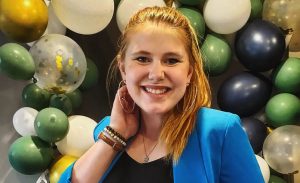
Emily Rasmussen is pursuing a doctorate in biomolecular sciences, which combines her passion for helping others with an interest in science. Submitted photo
Rasmussen is pursuing a doctorate in biomolecular sciences.
“This degree combines my passion for serving others with my interest in science by developing much-needed therapies for those suffering from illness,” she said. “The biomaterials space specifically excites me because of the potential to develop platform technologies that can be applied across a myriad of ailments.”
Wicks completed his bachelor’s in psychology at Mississippi State University before transferring to UM for his doctoral program, including research in social psychology.
“For as long as I can remember, I have always been interested in how people are impacted by their relationships with others and their sense of connection,” he said. “During my undergrad, I was able to get really involved in research relating to social support, peer bonding and close relationships while at Mississippi State University.
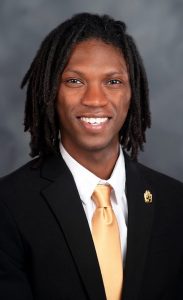
Sydney Wicks is working toward a doctorate in psychology, including research in social psychology. His studies focus on how people are affected by their relationships and sense of connection. Submitted photo
“Now, I have extended my research to also examine experiences of feeling disconnected and excluded from others.”
He finds that communicating research to varying types of audiences in clear and accessible ways can be challenging at times, especially when dealing with complex or technical information.
All five students participated in one or more of the university’s incentive programs that encourage application for the NSF Graduate Research Fellowship Program.
“A few years ago, the Graduate School decided to try to encourage more applications for the GRFP because a student cannot receive the fellowship if they do not apply,” Kluck said.
Robert Doerksen, associate dean of the Graduate School, worked with Jason Hale, director of research development in the Office of Research and Sponsored Programs, to develop seminars and application incentives.
“As we continue to elevate our research profile, it will be important for us to continue to grow the number of GRFP recipients on our campus,” Kluck said.
This material is based upon work supported by the National Science Foundation, under Grant No. 2235036.
